 Welcome to my SAT prep blog! While you’re here, be sure to join my mailing list for exclusive test prep content and subscriber-only pro tips!
Welcome to my SAT prep blog! While you’re here, be sure to join my mailing list for exclusive test prep content and subscriber-only pro tips!
In my years of SAT tutoring, I’ve found that the essay is one of the biggest sources of stress for students and parents (it really doesn’t need to be!)
Most of the time, anxiety and score issues with the essay are cleared up by covering the three following points:
- Arming yourself with knowledge about the essay requirements
- Being taught my tips, tricks, and strategies
- Doing practice on your own
In this article, we’re going to mainly be covering #2 – tips, tricks, and strategies to use on the SAT essay.
I’ve thought long and hard and come up with the 10 tips for the SAT essay that I think will be most helpful, to the most people, in the greatest variety of SAT prep situations.
But first, the basics…
What is the SAT Essay?
If you’re not yet in the know, the SAT test begins with a 25-minute timed essay on a “random” prompt (although the prompts are pretty predictable).
You’re simply expected to deliver a standard, well-argued essay that supports one or the other side of the prompt.
If you’d like to go into more detail, I’ve written a pretty huge reference post all about what the SAT is, so you might want to take a temporary detour and read that post first.
Get Exclusive SAT Prep Tips!
I want to send you more tips to help your SAT score, but I need your email address to stay in touch. Enter your email below so I can send you my reports on the SAT and other subscriber-only bonuses.
Otherwise, if you think you know everything already, here are the Top 10 Tips I came up with to help you get a great score on the SAT essay and writing section!
Tip #1: Look at a list of previous prompts
This is the first thing that everyone should do before they go take the real SAT essay.
Fear of the unknown is huge – so don’t let the essay topics stay “unknown,” go look at a list of real official SAT essay prompts from previous tests.
It’s also helpful to think about the themes that the prompts can be grouped into.
For example, some common themes are:
- Leadership
- Loyalty
- Creativity
- Success/Failure
Spend some time getting a feel for the prompts and how they’re asked… what they all have in common. You don’t have to have a specific agenda – just let your subconscious get some ideas, as you browse over the list.
Tip #2: Decide what evidence you’re going to write about
Your essay is going to need specific, concrete supporting evidence, and it’s going to have to come from somewhere.
You can actually do this ahead of time!
There are basically three ways to do your evidence:
- Use real examples from History and English class / “legit” school-type books
- Use your favorite examples from TV shows, movies, and pop culture
- Completely lie from head to toe.
All 3 of these methods are absolutely effective and can get you a 12.
However, now’s not the time to get in-depth on them. Maybe if you have any questions you can just ask in the comments and I’ll help you out.
Tip #3: Lies can be better than the truth
You do not lose points for getting your facts wrong.
Crazy, right? It makes the SAT essay almost totally unique, and after years of SAT prep, I’ve realized the deeper implications of this.
If you’re using a novel from school, and it’s almost perfect, but you need “this” to happen to make your essay bulletproof, and the book said “that” happened…
… then you just lie and say “this” happened. Pretend the story branched in a different direction, re-write history to support your point.
Your score has nothing to do with the accuracy or truthfulness of your statements.
Your score has everything to do with how directly you can support your argument with specific examples.
Tip #4: Don’t be unique
Reinventing the wheel is one of the worst things you can do in a timed, high-pressure situation.
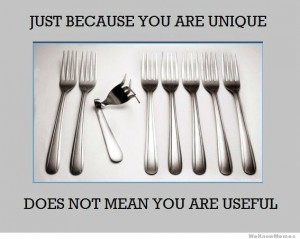
Instead of trying to be crazy, creative, or unique, you should fall back on the standard tools of the essay-writing trade: organization, supporting evidence, and the use of solid logic.
It’s not the time to be experimental. All you’re expected to do is take a side and write a typical 4- or 5-paragraph essay. Intro-Body-Body-Conclusion.
Don’t get fancy. You won’t get any points for it!
Tip #5: Never vague. Never confusing. Never complicated.
There is not enough time or space to get complicated.
Avoid grey area. Don’t argue both sides, just pick one. Don’t go off-topic.
Don’t use complicated examples that need a bunch of background explanations.
If you can’t get to your point within two sentences, it’s way too complicated.
Don’t use unsupported vague statements like “x has always been this way..”
Or “everyone knows that” or “many x’s have been y throughout history.”
Short, clear, quick, easy takeaway points are what get the graders’ love.
Want a great strategy to use? Read this post on rephrasing prompts for clarity.
Tip #6: Do timed practice essays
Not much to say about this one, other than how essential it truly is.
If you think you can just read about the essay and master all these strategies simply by thinking about them, you’re going to get a big surprise on the day of the test when you panic, choke, and underperform your potential.
Nothing in life gets better without practice. Nothing.
You’re not that special, my friend.
Without practice, you will not improve.
A good target? 3 full timed practice essays on 3 different prompts.
Tip #7: Handwriting matters (more than you think)
Although you are mainly being evaluated on the strength of your argument and your supporting evidence, it’s absolutely true that other factors like your handwriting and use of vocabulary matter as well.
One of the major factors I consider in my own evaluation of an essay is how good the handwriting is. If I have trouble or get irritated while reading, it’s not a good sign.
On the other hand, I have an immediate respect for students who can turn in an essay in clear, upright handwriting. They are making my job much easier and I am grateful for it.
If the grader has trouble reading your words, do you think your points will still be as effective? Of course not. Clean it up.
Write larger and more slowly – this is a time-honored way of improving your handwriting.
Even just thinking about it will make the problem noticeably better.
Tip #8: Grammar and spelling matter (less than you think)
Ironically, students tend to freak out about grammar and especially spelling mistakes when they’re trying to use cool vocabulary in their essays.
Let me tell you – they matter, but you shouldn’t worry about them like you worry about your handwriting.
Why’s that? Well, I figure you’re not going to suddenly know how to spell a tough word, no matter how long you think about it. In fact, to me, that seems like a pretty decent waste of time.
Likewise, with the grammar, you should focus on improving it through practice for the SAT Writing section.
The thing is, in both cases, you basically should have prepared ahead of time.
Tip #9: Proofread instead of napping
When you get to the end of your essay and feel you’ve made your point and aren’t going to write anything more, it’s time to start proofreading.
Do not be “that student” that takes the lazy way out and rushes through the essay to put your head down on the desk. “That student” is never going to amount to anything, never going to be anyone, and you’re better than that, right?
I thought so.
You are going to go write back up to the top of your essay and begin rereading as a form of quality control.
Do you get confused by what exactly you meant to say? Is your handwriting and spelling more or less fine? Do you notice any glaring grammar mistakes? Fix them!
It’s amazing how much just 3 minutes of basic proofreading can improve your essay.
Here’s why – in a timed situation, you’re focused on cranking out words and sentences, and you can forget to keep your writing standards high. Proofreading at the end gives you the best of both worlds.
Write like the wind at the beginning, but know that you’ll be coming back around to proofread. It’s the perfect mix of speedy creativity and disciplined craftsmanship.
Tip #10: Leave the grader feeling optimistic
This final strategy is a personal favorite secret weapon.
So here’s what you want to do. Use your last sentence of your conclusion to give some kind of optimistic ending though to your essay so that the grader doesn’t put your essay down thinking, “wow, I feel really crappy right now!”
I mean, come on, is that how you want the grader to feel about your essay? No way.
I know it’s not technically a scoring issue, but I still like to end with something like this:
“Despite all the damage that our new technologies are doing to the world around us, I believe that the human race is always striving to improve itself and do the right thing, and someday our persistence will pay off with a cleaner and safer planet.”
OR (if you were arguing the other side):
“Technology has been a positive force for the planet, and the human race will always strive to be a better caretaker of the wonderful natural world around us.”
See what I mean? Isn’t this a cool way to end, on a psychological high note?
I think so too ;)
You know the drill – leave your questions in the comments field below!
Now order my SAT Essay Strategy, Essay Evidence and SAT Grammar e-Books!
Further Reading:
What is the SAT Essay?
How to Write a Great 5-Paragraph SAT Essay
Top 5 Historical Examples for the SAT Essay
What Exactly is on the SAT Writing Section?
Additional Resources:
Top 30 Examples to Use as SAT Essay Evidence (e-Book)
Write the Best SAT Essay of Your Life! (e-Book)
SAT Grammar Crammer: Top 12 SAT Writing Rules (e-Book)
Conquer SAT Vocabulary (Video Course)
Before you go, be sure to join my SAT prep mailing list so I can send you my Urgent Report on SAT Reading and much more subscriber-only test prep content!





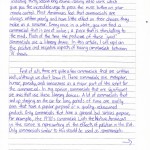
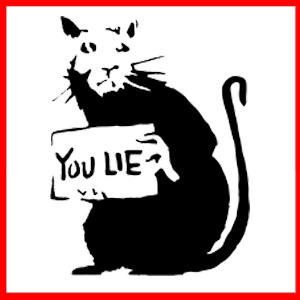

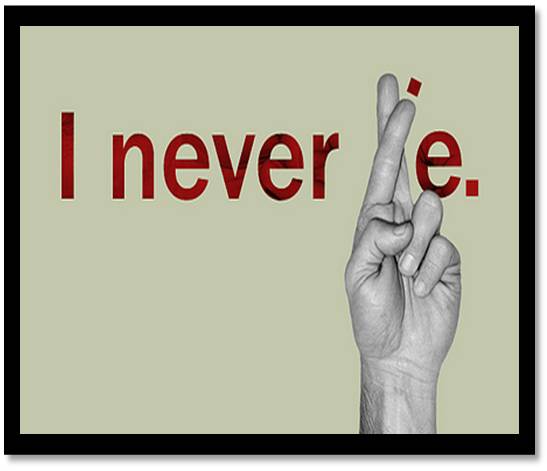

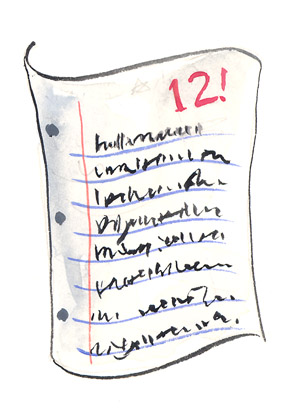







I think that the conclusion idea is really great! I have one quick question, I’m currently taking a Kaplan test prep course and they advised me not to copy bits and pieces of the prompt, I don’t really know why. The ironic part is that when I didn’t copy down pieces form the quote I received a score of 5 on a practice test, compared to a 6 when I did steal parts from the quote. It doesn’t make much sense to me, I think using parts from the quote really saves time and gives me a quick intro and ending statement in the conclusion. I hope you can shed light on this problem!
Hello! Thank you so much for all the tips! They are very useful. But I am still terrified that on my SAT exam , that I will not be prepared for a prompt and know nothing to write about! I am reading a lot of different examples , but do you have any tips for me so I know I will be 100% prepared for any prompt that they throw at me? Thank you so much